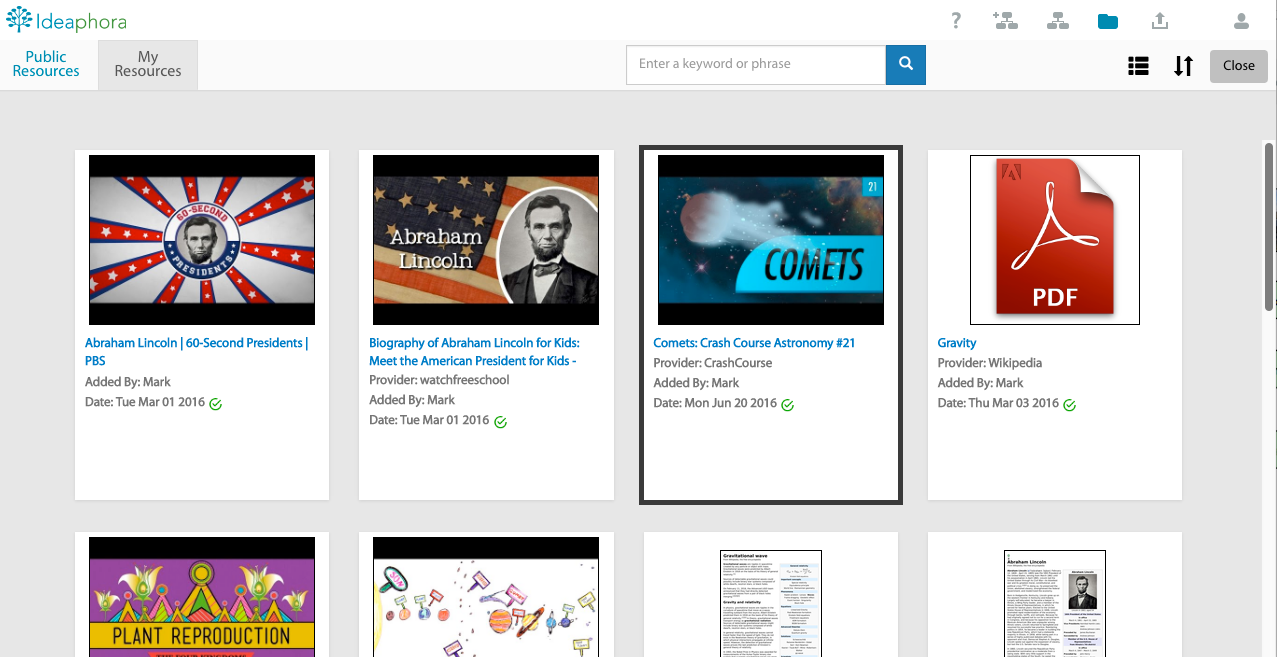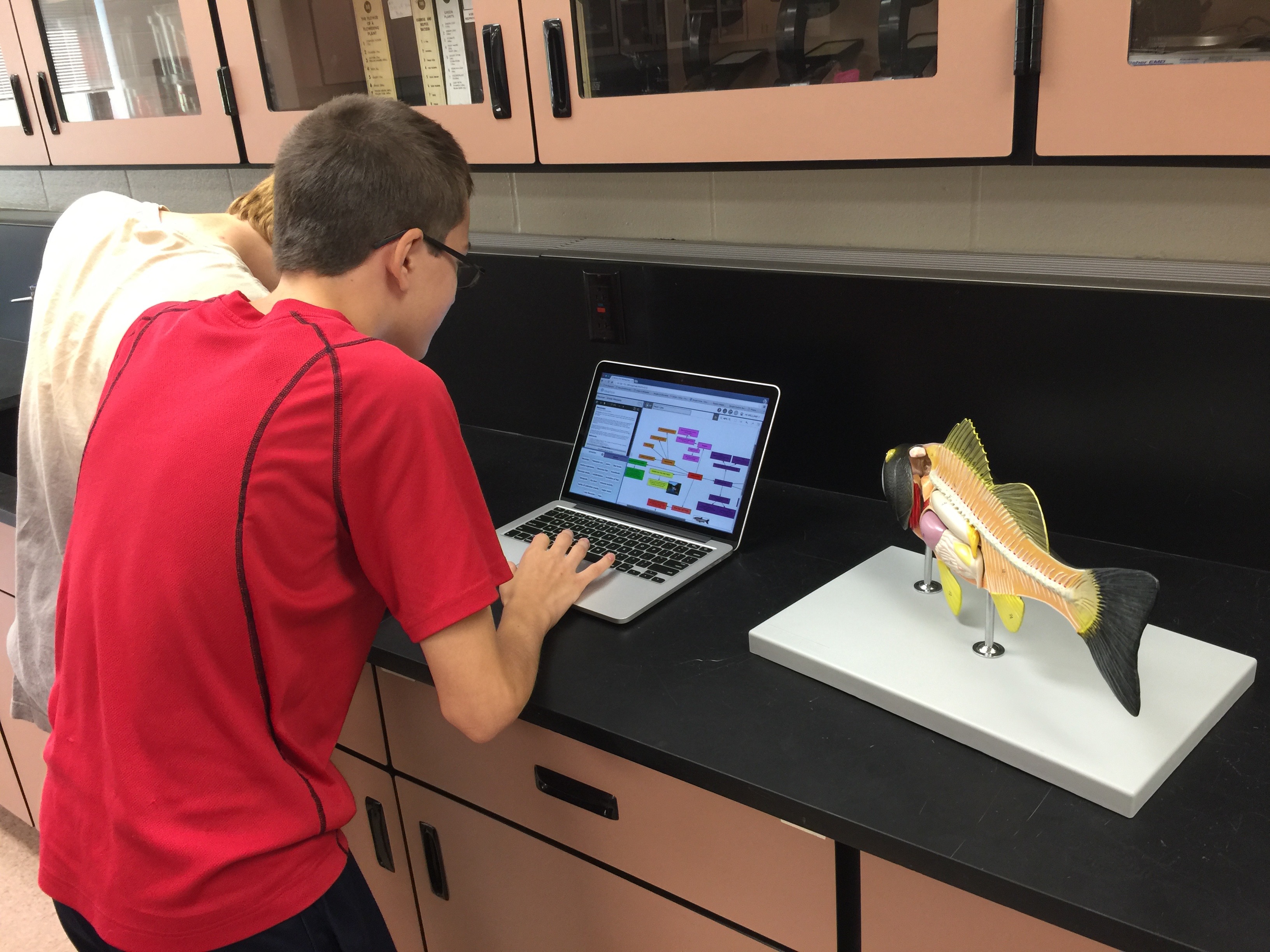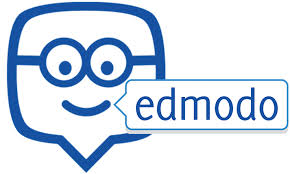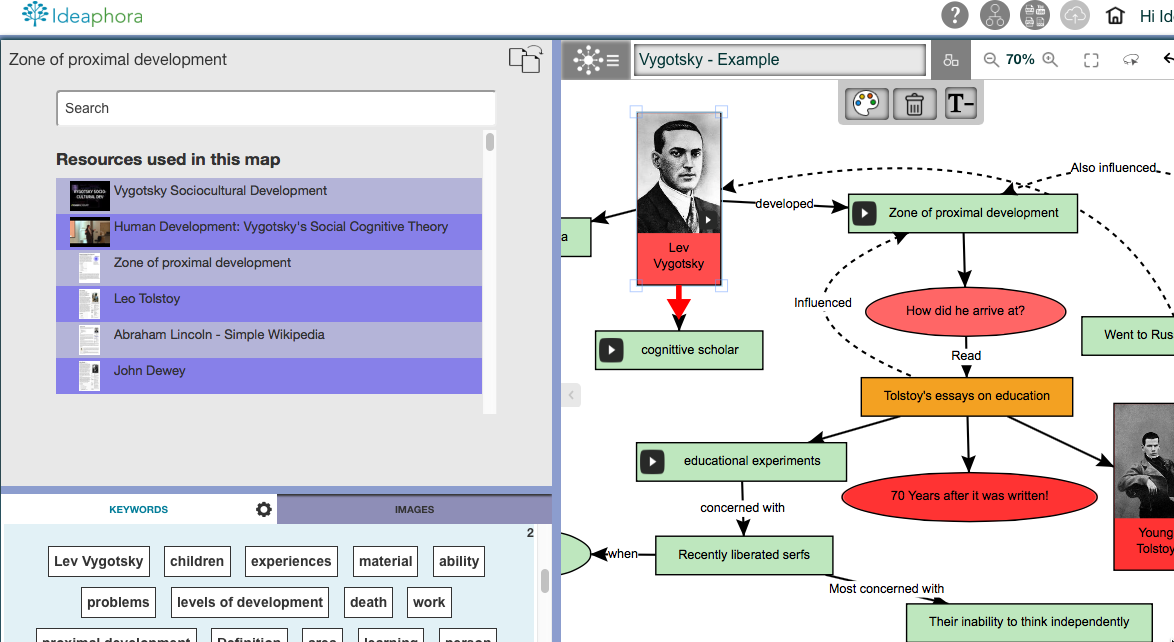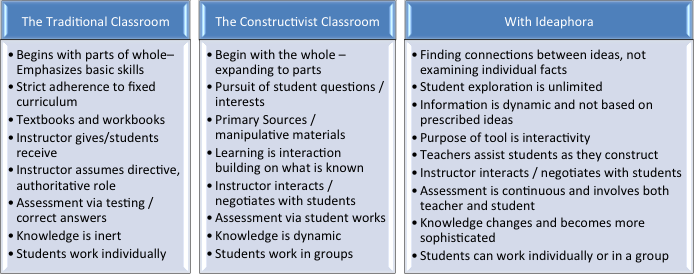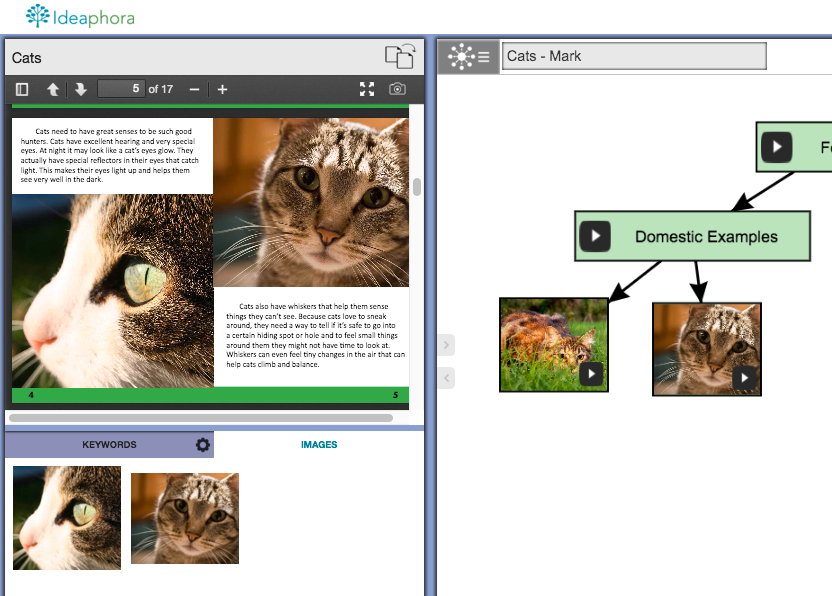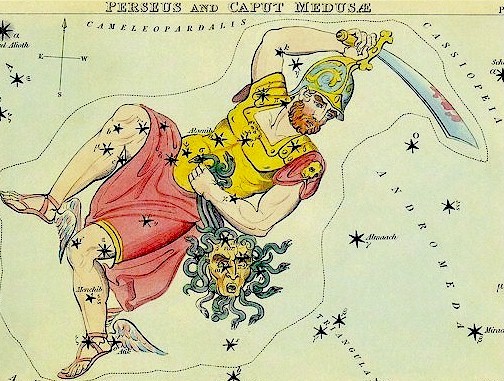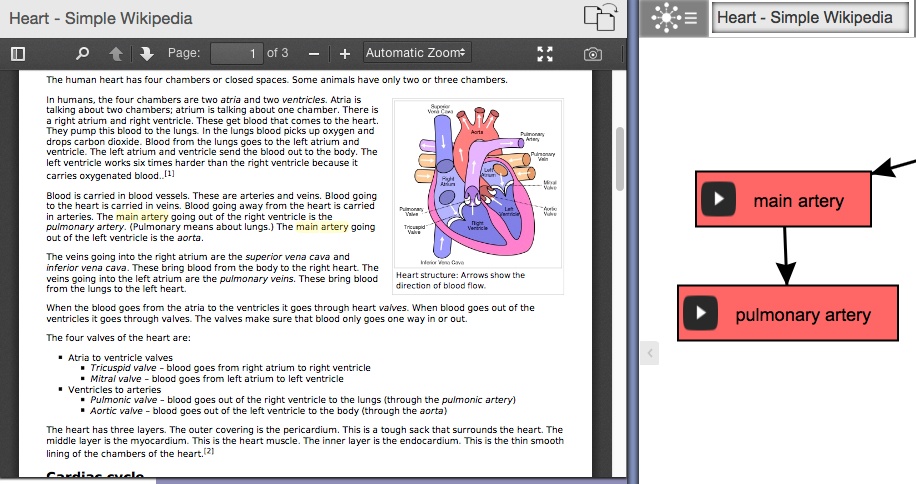We’re just a month away from launching Ideaphora (out of beta)! In the meantime, we’ve made several updates to our concept mapping environment. Check them out through the new “try-for-free” feature that allows you to take a tour and get started using Ideaphora without registering.
Grant Winners Announced!
We are pleased to announce the winners of the Ideaphora Connecting Knowledge Grants. After careful review, the judging panel has selected three well-deserving educators:
- $1,500 grant winner: Mike Jones, STEM instructor and technology coach, Bloomington School District 87, Bloomington, Illinois
- $500 grant winter: Kayley Bowie, middle school teacher, Crestomere School (Wolf Creek Public Schools,) Alberta
- $500 grant winner: Christi Collins, second grade teacher, Wise Primary School (Wise County Public Schools) Wise, Virginia
Ideaphora Partners with Edmodo
Ideaphora is now available in the Edmodo Store! Teachers and students can easily access and use our concept mapping tool through Edmodo’s single sign-on experience and automatic class rostering.
Edmodo users seeking to use Ideaphora in their classroom can simply click to install our application from Edmodo Spotlight and enjoy automatic and quick access. Teachers can select one or more of their classes that are already set up within the Edmodo platform to give their students access to Ideaphora and begin assigning them concept mapping activities to support personalized learning. Educators can also log into Ideaphora from our home page using their Edmodo credentials.
What Open Education Resources Do You Love to Use?
Ideaphora is guided by the mission to help students build critical thinking skills and lasting knowledge from the digital content they are increasingly exposed to in and out of school by offering a first-of-its-kind concept mapping and learning environment. The strength of learners' knowledge maps depends on the quality of the content they use as sources to create connections among concepts. To that end, Ideaphora is seeking the best open education resources (OER) to provide a robust library of materials that educators and students can use in building their knowledge maps. We want to hear from you!
Applying Constructivism Through Knowledge Mapping
This post is written by Mary Chase, Ph.D., an expert in curriculum design, literacy education, and technology integration.
Recently on this blog, we’ve been exploring an important brain function – visual learning – and the theories that suggest ways of helping students acquire associated learning strategies. Dual coding theory tells us that information that is encoded both visually and verbally is retained longer and in more complexity than mere words alone. Cognitive load theory demonstrates how information that is linked together through shared associations can enter long term memory as a single chunk, rather than bit by bit, making the learning process more efficient. This week, we’ll add another theory to our series about how learning takes place: constructivism.
New! Using PDFs and Images in Ideaphora
Teachers and students can now take advantage of a broader range of open education resources in Ideaphora using PDFs and images. Ideaphora continually rolls out new features and enhancements based on our product road map and feedback from our users. Our goal is to enable teachers and students to use any digital content as source material and multimedia resources for their knowledge maps to provide a more enriching, visual, flexible, and meaningful learning experience. However, to ensure the most accurate and appropriate keywords are generated for the best possible learning experience, we must address different types of resources in various stages to adapt our semantic analysis engines to how best to work with them. Watch out for more coming soon!
This week we've enabled our technologies to deconstruct uploaded PDFs into relevant concepts that are automatically presented as keywords for users to drag and drop into their knowledge maps. We've also provided a way for users to easily grab images from resources already provided in Ideaphora, including PDFs and Wikipedia articles, as well as by simply copying and pasting images from other online sources, into their maps.
Patterns and the Visualization of Knowledge
This post is written by Mary Chase, Ph.D., an expert in curriculum design, literacy education, and technology integration.
Why do educators make such a big deal about recognizing patterns of information and organizing facts? These skills are necessary to developing expertise. Expert knowledge goes beyond mere recall of facts to the ability to connect new information to old and create new understandings. John Bransford, an educational psychologist whose findings have centered on these ideas, has gone so far as to say, "Helping students to organize their knowledge is as important as the knowledge itself, since knowledge organization is likely to affect students’ intellectual performance." Focusing on patterns of information (rather than just discrete facts) is also important because these patterns are visual in nature and easily recalled.
We Hear You!
Our beta testers and classroom pilots have shared amazing feedback with us over the past few months on what they see as the greatest benefits and features in Ideaphora, as well as what they'd like to see improved. While we started Ideaphora with a roadmap in mind for the product, the ongoing feedback and relationships we have with our users are paramount to our continued success and ensure our knowledge mapping environment evolves with the needs of educators and students at every level. We heard from them that they wanted greater flexibility and customization built into our platform. Today we're unveiling three new features that incorporate their ideas.
New Year, New Updates!
We're at it again. We've added numerous enhancements to the Ideaphora knowledge mapping environment to further improve the user experience for teachers and students. These updates are available to beta users and pilot sites as we move closer to the public launch of our subscription-based tool. During the beta testing phase, everyone can use Ideaphora for free.
The product improvements are focused on four areas:
- Tablet support
- Map sharing
- Content
- Classroom management tools (for pilots)
NEW! Enhancements Added to Our Knowledge-Mapping Environment
Just two months ago, we released the beta version of our web-based knowledge mapping environment and asked educators and friends to join us in the journey and share their feedback to ensure we provide teachers and students with the most effective tool for interacting with digital content, such as videos and ebooks, and deepening their understanding of it. During that short time, we've gained valuable suggestions from testers and incorporated their ideas into our product to enhance and improve the experience for learners. Today we've released several updates that you can experience for yourself.

